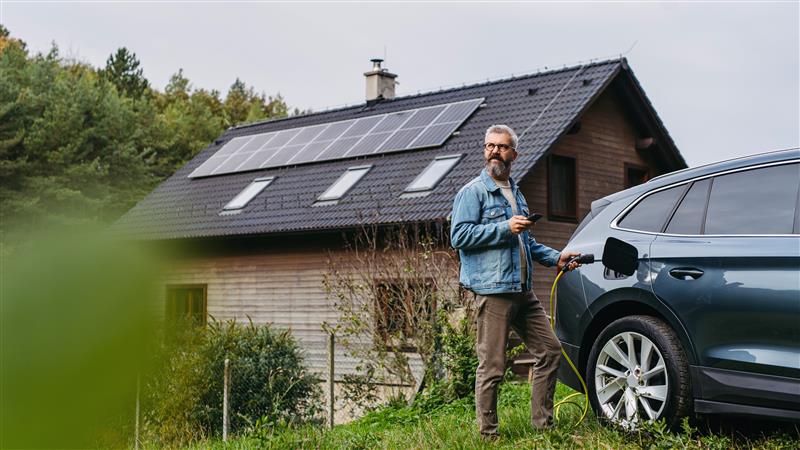Planning blunders: Five common upgrades that could delay your house sale

Thinking of upgrading your home? A planning expert warns that some popular improvements could make selling your property far more difficult if you're not careful.
It is easy to assume that many straightforward property enhancements are covered by permitted development, which is the right to alter your home without planning permission. However, it’s advisable to take a closer look at planning rules before starting work, according to John Van-Eker, Principal Town Planner at TerraQuest’s Planning Guidance Service.
“Planning permission rules and regs can catch people out and it’s easy to assume some seemingly minor changes to your home wouldn’t require permission. We see the same issues pop up all the time – but with the right advice, they’re easy to avoid.”
Replacing windows
“Many people don’t realise that replacing windows, particularly to properties in conservation areas or even new build homes with traditional or heritage designs, may require planning permission. If your home is in a conservation area, subject to an article 4 direction or is listed, there will be restrictions on materials, style, or glazing when choosing replacement units.”
Installing solar panels
“While solar panels are typically allowed under permitted development, restrictions apply in conservation areas, AONBs, national parks, or if your home is listed. Solar panels can also be erected away from your property within your residential curtilage however this is subject to strict conditions.
Adding air conditioning units
“Homeowners often assume air conditioning units can be installed without the need for planning, but this is actually a common misconception. We’ve been seeing an increase in this type of enquiry with the warmer weather. I want to remind applicants that AC units do often require planning permission, depending on their size, placement, and noise impact.
This is especially important in flats or in designated areas like conservation areas In May 2025 Class G was altered to relax the rules around Air Source Heat Pumps however units that solely air condition require planning permission.”
Removing or constructing a chimney
“Eliminating or adding a chimney stack might seem like an internal decision, but it can affect the overall character of a property and those in listed buildings, conservation areas, AONBs, the Broads or Heritage sites face restrictions. Permitted development rights might also have been removed as a result of an Article 4 or a condition on a previous planning application and may also need Building Regulations approval.”
Installing or changing a driveway or dropped kerb
“Laying a new driveway might appear straight forward, but even this simple addition may require planning permission depending on the size of the area you are covering and the materials you use. It’s also important to confirm there aren’t any conditions that have been placed on your property preventing a new driveway. New build properties often have tight planning conditions and in these cases it’s often the case that planning permission is required. Skipping this can land you in hot water.”
Rendering your home
“”Permitted development rights outline that homeowners can add render to your property as long as it is a house or bungalow. Flats or apartments do not have this right. This is again subject to conditions and technical guidance which confirms that any new materials used should be of similar visual appearance to those in the existing house. It’s often the case that applying render to a brick property requires planning permission so it’s always worth confirming before you start any work.
“These are just some of the most common queries we receive through the Planning Guidance Service. What many homeowners don’t realise is that planning oversights can show up during the conveyancing process, potentially delaying or even derailing a house sale.
“Planning rules can vary significantly depending on your location, especially if your home is in a conservation area, national park, or subject to Article 4 Directions. That’s why it’s so important to seek expert advice before starting any home improvement project.
“In my role, I help clarify which works require planning permission, and advise people on the application process. Many assume permission isn’t needed for upgrades like solar panels or new driveways, but these assumptions can lead to expensive mistakes, especially when solicitors or mortgage lenders start digging into the details.
“If you’re planning any renovation work, I’d strongly recommend speaking to an expert, using a trusted provider like TerraQuest’s Planning Guidance Service. A quick phone consultation could save you significant time and money down the line.
“As the operators of Planning Portal, which processes 95% of all planning applications in England and Wales, we know exactly what’s required to get it right first time - and avoid unwanted surprises.”
To book an appointment with the Planning Guidance Service, visit: www.planningportal.co.uk/permission/planning-guidance-service





